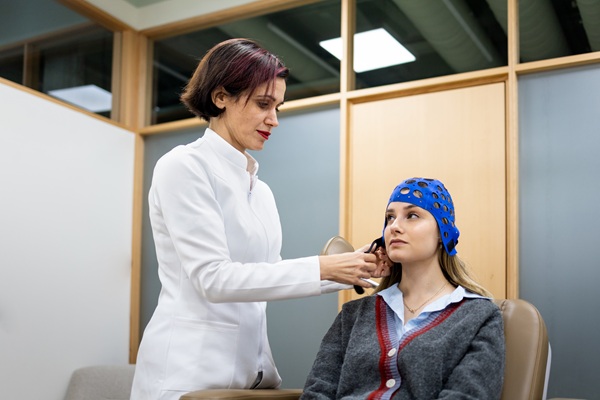When TMS May Be Recommended as a Depression Treatment

TMS (transcranial magnetic stimulation) is a type of stimulation treatment for the brain. This is a non-intrusive therapy involving the use of electromagnetic pulses in triggering nerve cell activity. It may improve symptoms of mental or neurological disorders. This therapy may be effective in treating depressed patients. If you want to know when TMS can become a treatment for depression, here are the details.
Major depression treatment
TMS has been considered for MDD (major depressive disorder). It has become an effective therapy for major depression. The FDA (Food & Drug Administration) approved this depression treatment back in 2008. Doctors recommend using this type of brain stimulation if the patient is unresponsive to antidepressants and psychotherapy. This condition is treatment-resistant depression.
Studies show that about 30% of patients with depression do not respond to these treatments. Research in 2015 proves its link to low prefrontal cortex activity. This area of the brain is involved with symptoms of depression like appetite changes and reduced energy levels. TMS may aid in increasing prefrontal cortex activity and triggering nerve cells.
Antidepressants are the drug of choice for MDD. Even so, it has terrible side effects. Teenagers and children are vulnerable to experiencing the negative effects of taking these medications. This makes TMS ideal for younger patients.
How TMS works
A doctor or technician can provide the therapy. This is an outpatient procedure. The patient can receive it in a clinic. Having it in a hospital will need an overnight stay. Removing magnet-sensitive items like jewelry is important before the treatment.
The doctor will tell the patient to wear the earplugs first. This will reduce the clicking sound of the impulses from the magnet. The patient will sit in a relaxing chair. There will be no need for anesthetics for this non-intrusive treatment. The patient will be awake during the session.
During the first treatment, the doctor will measure the patient’s head to place the magnetic coil in the right position. Taking other measurements will enable custom-fit TMS machine settings. The doctor will place the coil above the front part of the brain. The treatment will then start.
The patient will hear the clicking sounds of the magnetic impulses. There will also be a knocking or tapping sensation underneath the magnetic coil. This treatment can last for about 30-60 minutes. The absence of anesthesia will allow the patient to drive home and perform daily activities. The patient will repeat the procedure five days each week for about four to six weeks.
The success rate
TMS has a promising success rate. There is about a 64% response rate in patients receiving this treatment. That is why doctors also use this treatment for other disorders. A patient can get TMS for treating other conditions, such as schizophrenia.
TMS can help ease the symptoms of treatment-resistant depression
Antidepressants are basic medications for MDD. This treatment may not be effective for some patients. This is when doctors recommend TMS. This non-invasive treatment can ease depression symptoms without anesthetics. Seeing your doctor for regular checkups can determine if you need this type of depression treatment.
Get more information about Future Psych Solutions in Columbia at https://futurepsychsolutions.com.
Check out what others are saying about our services on Yelp: TMS in Columbia, SC.
Recent Posts
Mental health plays a critical role in overall well-being, influencing thought patterns, emotional stability, and behavior. For those experiencing persistent challenges, a formal diagnosis can provide clarity and a structured approach to healing. With guidance from a psychiatrist, individuals can better understand their condition and begin a path toward long-term mental wellness.A mental health diagnosis…
Are you looking for a TMS doctor? A TMS doctor is one that offers Transcranial magnetic stimulation to treat patients with major depressive disorder, which is also called MDD or clinical depression. Every TMS doctor utilizes their own method of treatment and many practices under other titles such as that of a psychiatrist. Learning more…
Post-traumatic stress disorder (PTSD) is a mental health condition that can develop after experiencing or witnessing a traumatic event. PTSD treatment aims to reduce symptoms and help people function better in their daily lives. It also focuses on improving their overall health and well-being. PTSD often causes anxiety, flashbacks, and emotional distress, making effective treatment…
Everyone experiences occasional anxiety, but an anxiety disorder involves persistent, excessive worry and physical symptoms that can disrupt daily routines, relationships, and overall well-being. If left untreated, these symptoms can intensify, impacting mental and physical health. Seeking help from a psychiatrist can be a significant first step toward effectively managing anxiety disorder symptoms and getting…


